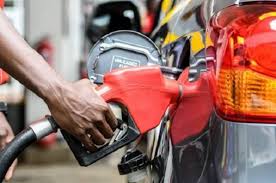Obtaining a Petroleum Products Retail Outlet License (often called a Retail Outlet Monitoring or ROM license) is the legal cornerstone for any petrol station owner in Nigeria. Under the Petroleum Industry Act (PIA) 2021, the Nigerian Midstream and Downstream Petroleum Regulatory Authority (NMDPRA) is mandated to regulate, monitor, and license all midstream and downstream petroleum activities, including retail outlets. Securing this license not only ensures compliance with Nigerian law but also protects your business from hefty penalties and shutdowns.
This comprehensive guide aggregates 100% of its information directly from NMDPRA’s official digital platforms (ELPS) and published regulations, delivering clear steps, requirements, cost breakdowns, tables, FAQs, and common misconceptions
Legal Framework
-
Petroleum Industry Act (PIA) 2021: Establishes NMDPRA to oversee midstream/downstream operations.
-
Midstream and Downstream Petroleum Operations Regulations 2022: Stipulate that no person shall sell or distribute petroleum products without a valid license issued by the Authority.
-
Assignment or Transfer of License and Permit Regulations 2023: Prescribes a fee of ₦2,000,000 per retail outlet license.
Step-by-Step Application Process
-
Company Registration
-
Incorporate your business with the Corporate Affairs Commission (CAC) and obtain a Certificate of Incorporation.
-
Obtain Federal Inland Revenue Service (FIRS) Tax Identification Number and a recent Tax Clearance Certificate.
-
-
Create an Account on NMDPRA ELPS Portal
-
Visit the NMDPRA Licensing portal at https://elps.dpr.gov.ng.
-
Register and create your company profile.
-
-
Select “Retail Outlet Monitoring (ROM)” License
-
After logging in, navigate to “Apply for New License” and choose Category A: Retail Outlet Monitoring (ROM).
-
-
Upload Required Documents
-
Prepare and upload scanned copies (PDF/JPEG) of all supporting documents (see table below).
-
-
Pay Application Fees
-
Pay the non-refundable application fee via NMDPRA’s Remita TSA portal.
-
License fee: ₦2,000,000 per outlet.
-
-
Site Inspection & Pre-licensing Audit
-
NMDPRA officers will schedule an inspection to verify compliance with safety and environmental standards.
-
Upon satisfactory inspection, an operating license is granted.
-
-
License Issuance
-
Download your digital license from ELPS.
-
Display the license prominently at your retail outlet as mandated.
-
Requirements & Supporting Documents
| Document | Details |
|---|---|
| Certificate of Incorporation (CAC) | Certified true copy |
| Memorandum & Articles of Association | Up-to-date and stamped |
| FIRS Tax Clearance Certificate | Covering last three years |
| Company Tax Identification Number (TIN) | Issued by FIRS |
| Proof of Payment (Remita Receipt) | For application & license fees |
| Environmental Compliance Certificate | From Federal/State Environmental Protection Agency |
| Fire Safety Compliance Certificate | Issued by Federal or State Fire Service |
| Site Plan & Surveyor’s Layout | Approved by town planning authority |
| NMDPRA Safety Audit Report | Conducted by a NMDPRA-accredited safety consultancy |
| Company Profile on ELPS | Completed on NMDPRA portal |
Cost Breakdown
| Cost Item | Amount (₦) | Source |
|---|---|---|
| Application Fee | 200,000 | ELPS portal guide |
| Retail Outlet License Fee | 2,000,000 | Assignment Regulations 2023 |
| Environmental Impact Assessment (if appl.) | 500,000 – 1,000,000 | Typical range cited by industry |
| Safety Audit (NMDPRA-accredited firm) | 150,000 – 300,000 | Market average |
| Town Planning Approval | 150,000 – 300,000 | Varies by state |
| Total Estimated Initial Outlay | 3 – 3.6 million |
Exact application fee varies by zone and category; confirm on ELPS before payment.
Frequently Asked Questions
Q1: How long does it take to obtain a retail outlet license?
A: From complete submission to issuance, expect 4–8 weeks, depending on inspection schedules.
Q2: Who issues the retail outlet license?
A: The Nigerian Midstream and Downstream Petroleum Regulatory Authority (NMDPRA) via its ELPS portal.
Q3: Can existing stations operate while renewal is pending?
A: Yes, provided your renewal application is submitted before expiration; you receive a grace period of 3 months.
Q4: Is NNPC affiliation required?
A: No. A license confers regulatory approval to retail; brand/franchise agreements with companies like NNPC/PUMA are separate commercial arrangements.
Q5: What happens if I operate without a license?
A: Penalties include license revocation, fines up to ₦5 million, and possible equipment seizure.
Common Misconceptions
-
“Paying NNPC grants regulatory license.”
Branding fees to NNPC/PUMA/etc. do not substitute for an NMDPRA license. -
“Any gas station can sell diesel/petrol without site clearance.”
Site clearance and environmental approvals are non-negotiable prerequisites. -
“License once; never renew.”
Retail outlet licenses are annual and must be renewed before expiry to avoid penalties. -
“Online application means no inspection.”
Digital submissions streamline paperwork, but physical inspections remain mandatory.
Conclusion
Securing your Petroleum Products Retail Outlet License is a structured, transparent process managed by the NMDPRA via its Electronic Licensing and Permit System (ELPS). By following this guide, registering your business, completing your ELPS profile, uploading all required documents, paying the stipulated fees (₦2 million license), and passing the mandatory inspection, you ensure full compliance with Nigerian petroleum regulations.
Ready to power up your petrol station business legally? Start your application today at https://elps.dpr.gov.ng and join the ranks of fully licensed, transparent, and professional fuel retailers in Nigeria.


